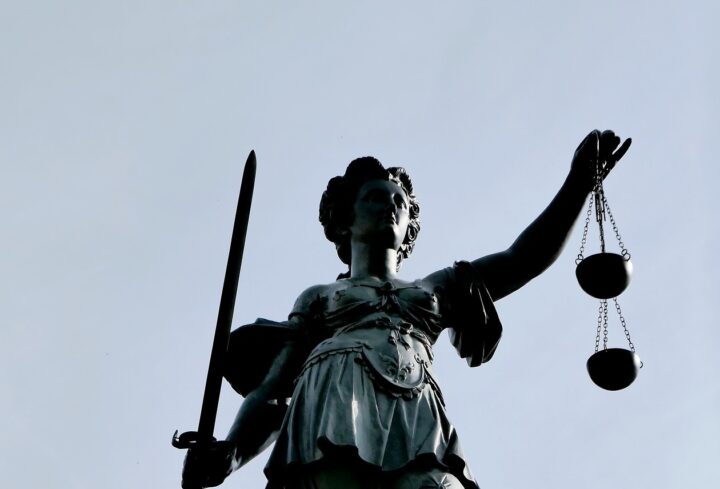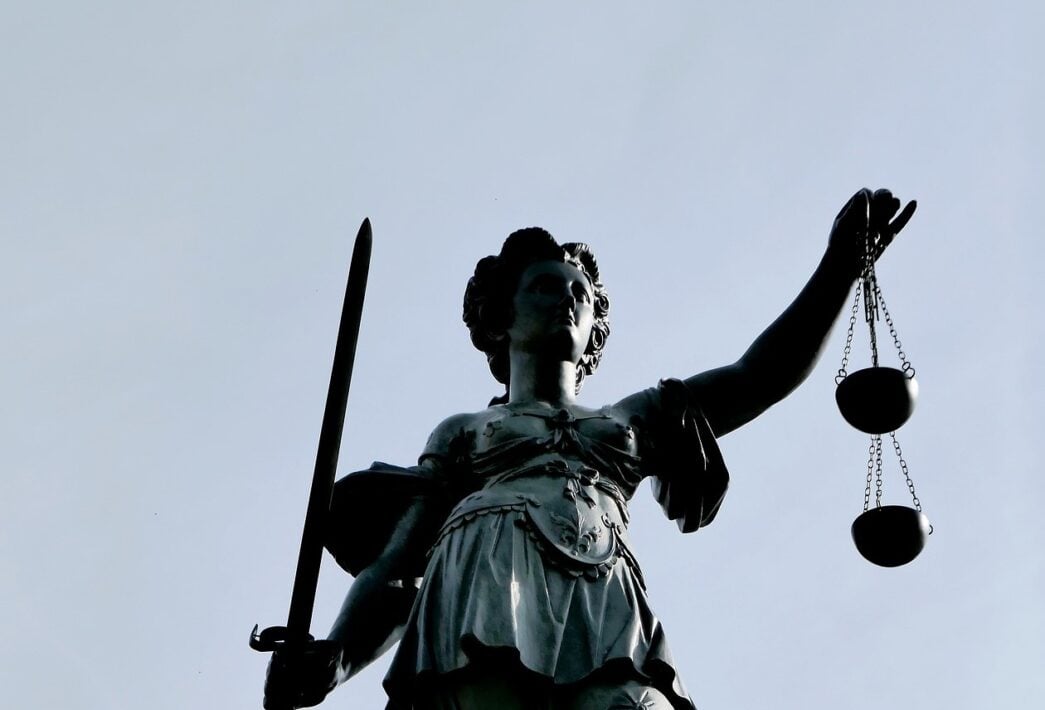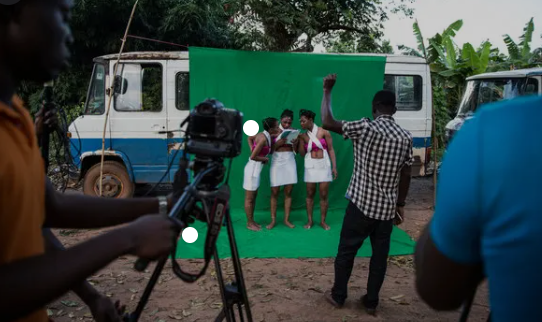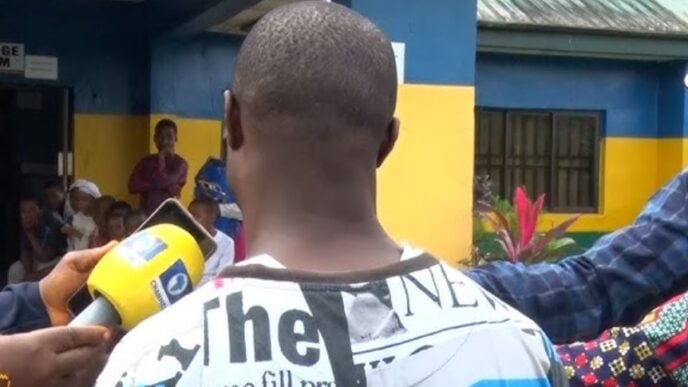BY HUSSEIN ADOTO
The Nigerian government’s love for dramatic justice is a show we have all seen before. They act like decisive disciplinarians, make arrests, and issue swift punishments to public offenders. But just as quickly, they walk back pronouncements, commute sentences, or grant pardons, revealing the performance for what it is.
In less than two weeks, the government went from banning King Wasiu Ayinde Marshal (KWAM 1)—the veteran Fuji musician who disrupted a ValueJet flight and almost got himself killed in the melee—for six months, to reducing the ban to one.
It gets better. The Minister of Aviation and Aerospace Development, Festus Keyamo, also announced that the “FAAN (Federal Airports Authority of Nigeria) will also work with the music star with a view to engaging him as an ambassador for proper airport security protocol going forward.” Talk about Ade ori Okin, the title of one of KWAM 1’s famous songs. His peacock has gotten a new feather.
Advertisement
The wave of good news also swept to the shores of Captain Oluranti Ogoyi and First Officer Ivan Oloba, the daredevil ValueJet pilot and co-pilot whose licenses were suspended after the incident with KWAM 1. Their suspension now has a timeline: one month.
Even “KWAM 2”, Comfort Emmanson—the feisty Ibom Air passenger who went from aircraft to Kirikiri after having an altercation with the airline’s crew, has had all the criminal charges swiftly levelled against her withdrawn.
And with that, the drama that lasted days is now over. Watch out for the next episode.
Advertisement
The swiftness with which these sanctions were issued and withdrawn reveals a deeper problem: inconsistency. I don’t think the incidents were about genuine justice; they were about temporary public relations efforts at sedating an excited public.
The government’s initial pronouncements were meant to signal a tough stance, but the subsequent reversals show that consequences are negotiable, dependent not on the crime committed but on the public interest it generated.
Of course, the justice system should be able to correct itself when it errs; its custodians, at least, should. However, when that system passes a sanction only to walk it back for the flimsiest of reasons, it inspires little confidence in its ability to deter crimes and criminals.
Punishment exists partly to show that misconduct has consequences and to discourage other people from repeating such misconduct. University students, for instance, know they will be expelled if caught cheating. Doctors know they will lose the licenses they spent seven years chasing if they are found guilty of misconduct or negligence. The certainty of punishment keeps everyone in check. When punishment becomes as unstable as the national grid, it becomes less of a deterrent and more of a performance.
Advertisement
Italian criminologist Cesare Beccaria argued centuries ago in On Crimes and Punishments that the certainty of punishment is far more effective than its severity. While I disagree with the severity premise—I believe punishment should match the degree of the crime as much as possible to be truly deterring—he was spot on about the need for punishments to be guaranteed. Deterrence shows criminals the risks and gives victims hope for justice. Deterrence is why we think twice before touching a hot stove.
When citizens see others walk free after committing real or imagined offenses, the deterrence mechanism collapses. An undergraduate would take a phone into an exam if he sees a colleague do it and faces no punishment. Not guaranteeing consequences makes everything a probability. Perhaps you get caught, but look on the bright side—you will get a state pardon, a commuted sentence, or a plea deal that sees you walk back home in weeks to enjoy your loot. It is the cost of doing business, as it were. In that context, crime becomes a calculated investment, not a moral failure.
If Beccaria were to look back at our time now, he would weep. We are not applying his deterrence theory. Justice is delayed and diluted. The law and its consequences are negotiable. Just commit the right set of crimes, stage the right set of drama, and know the right people. You will be pardoned in no time. Look at how ex-President Goodluck Jonathan pardoned former Governor of Bayelsa State, Diepreye Alamieyeseigha.
The decay doesn’t stop with the lack of deterrence. The Broken Windows Theory, propounded in 1982, tells us that tolerating minor crimes (broken windows) breeds bigger ones (more broken windows)—petty theft graduates to armed robbery. Yan daba (thugs) become bandits. Unchecked vandalism, disorder, and minor lawlessness create an environment where serious crimes feel more permissible.
Advertisement
When we overlook so-called petty crimes—like some #EndBadGovernance protesters who looted and destroyed public property—criminals become promiscuous. Their moral boundaries dissolve. Ordinary citizens begin to doubt whether the law serves justice or can protect them, and they start seeking their means of protection. That doubt is why some clamour for private gun licenses now.
Victims wake up to seeing criminals celebrated. Those in IDP camps yawn while the terrorists who put them there sign peace accords with the state. Civil servants groan about unpaid salaries, while those who misappropriated their commonwealth get rehabilitated into politics, rewarded with chieftaincy titles, or retire comfortably with their stolen wealth.
Advertisement
The cycle becomes self-reinforcing: every unpunished crime encourages the next, every pardon erodes the public’s confidence in institutions, every walked-back pronouncement becomes a joke, and every act of selective justice deepens the culture of impunity. Who cares what the law says?
Without consequences that are swift, fair, and sure, our justice system ceases to be a deterrent. It becomes a performance. The next generation of criminals is behind the curtain in that theatre, already rehearsing their lines for what will surely be a blockbuster.
Advertisement
Hussein Adoto is a Nigerian journalist and award-winning essayist published in The Punch, TheCable, Daily Trust, Punocracy, BellaNaija, and The Guardian Nigeria. With a background in microbiology and medicine, he writes on health, science, education, and society. He writes via [email protected].
Advertisement
Views expressed by contributors are strictly personal and not of TheCable.









